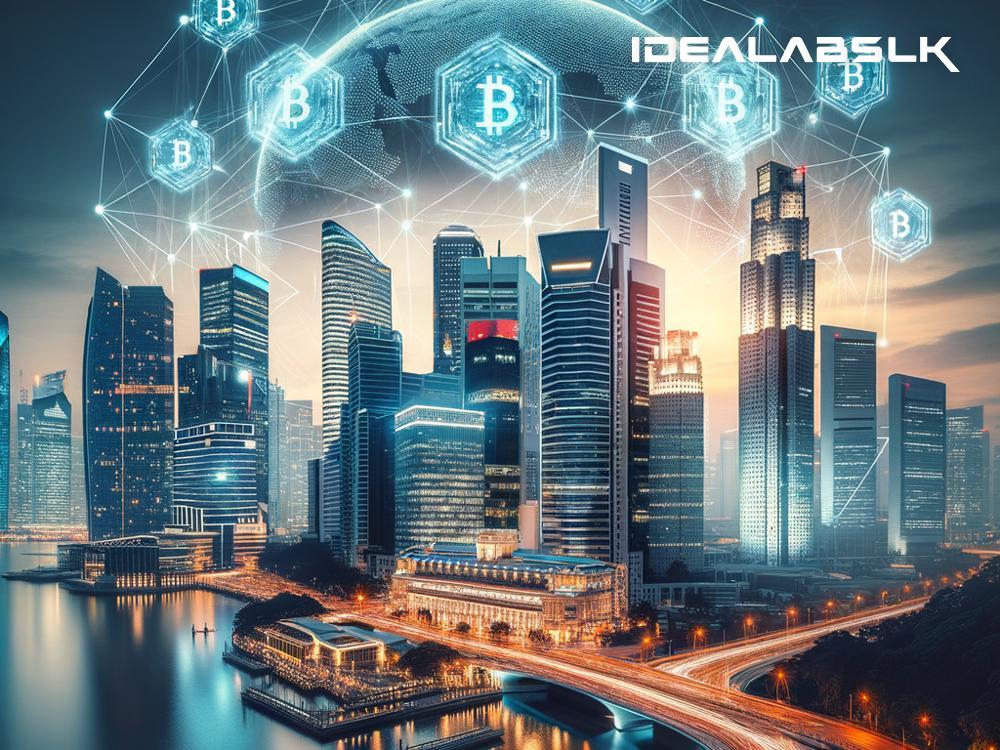Title: The Key to Global Property Investments - How Blockchain Cracks Cross-Border Hurdles in Real Estate
Introduction:
Real estate has always been seen as a solid investment, but when you try to invest in properties across borders, the complexity can quickly become overwhelming. From navigating legal systems to dealing with different currencies, the barriers can seem insurmountable. However, with the advent of blockchain technology, these cross-border investment barriers are beginning to crumble, opening up international real estate markets like never before. Let's explore how blockchain is paving the way for effortless global property investments.
A Glimpse Into Blockchain:
Imagine a ledger that's not held in one specific place but is distributed across a network of computers. This ledger records transactions in blocks, and once a block is filled, it's linked to the previous one, thus forming a chain - hence, blockchain. This simple yet revolutionary technology is transparent, secure, and decentralized, making it a game-changer for various industries, including real estate.
The Challenges of Cross-Border Real Estate Investments:
Investing in real estate across borders typically involves a myriad of challenges:
-
Complex Regulations: Every country has its legal hoops, making it difficult to comply with local laws and regulations from afar.
-
Financial Hurdles: Dealing with foreign currencies and banking systems can introduce additional costs and complexities.
-
Transparency Issues: Without local knowledge, it's hard to gauge the true value and potential of a property.
-
High Costs: Traditional transactions involve several intermediaries, each adding their fees, making cross-border investments costly.
How Blockchain Offers Solutions:
Blockchain technology is innovative in that it offers straightforward, practical solutions to these age-old problems:
-
Smart Contracts: Think of these as self-executing contracts where the terms are directly written into code. In real estate, this means purchase agreements, leases, and other legal documents can be automated and standardized across borders, reducing the need for local lawyers and cutting through red tape.
-
Tokenization: This is a process where real estate assets are converted into digital tokens on the blockchain. These tokens represent a portion of property ownership and can be bought and sold easily. This means investors can trade in fractions of property, making investments more accessible while also providing liquidity in markets that were previously illiquid.
-
Transparent Transactions: Blockchain provides a transparent, immutable ledger where every transaction is recorded. This clears the fog around property histories, ownership details, and value, providing a clearer picture to foreign investors.
-
Reduced Costs: By eliminating the chain of middlemen, blockchain significantly reduces transaction fees. This democratizes real estate investments, making them feasible for smaller investors who were previously priced out by high costs.
Real-World Impact and Potential:
Blockchain in real estate isn't just theoretical. Projects around the world are already showing its practical benefits. For instance, platforms like Propy allow for the buying and selling of properties using blockchain, making international transactions as simple as a few clicks. Meanwhile, tokenization projects are enabling investors to own pieces of real estate in hot markets like New York and Dubai without needing to buy entire properties.
These developments are not just making cross-border investments more manageable; they're reshaping the global real estate market. By increasing access and reducing barriers, blockchain is making real estate investment a truly universal opportunity.
Conclusion:
The impact of blockchain on the real estate market is profound. By overcoming traditional cross-border investment barriers, it's not just simplifying transactions; it's opening up the global property market to a broader audience. Whether it's through smart contracts, tokenization, increased transparency, or lower costs, blockchain is setting the stage for a more inclusive, efficient, and global real estate industry.
As we look to the future, the fusion of real estate and blockchain holds exciting prospects. With ongoing innovations and growing acceptance, we're on the brink of a new era where investing in a beachfront property in Bali or an apartment in Paris is as straightforward as buying stocks. Welcome to the new age of global real estate investment, powered by blockchain.

